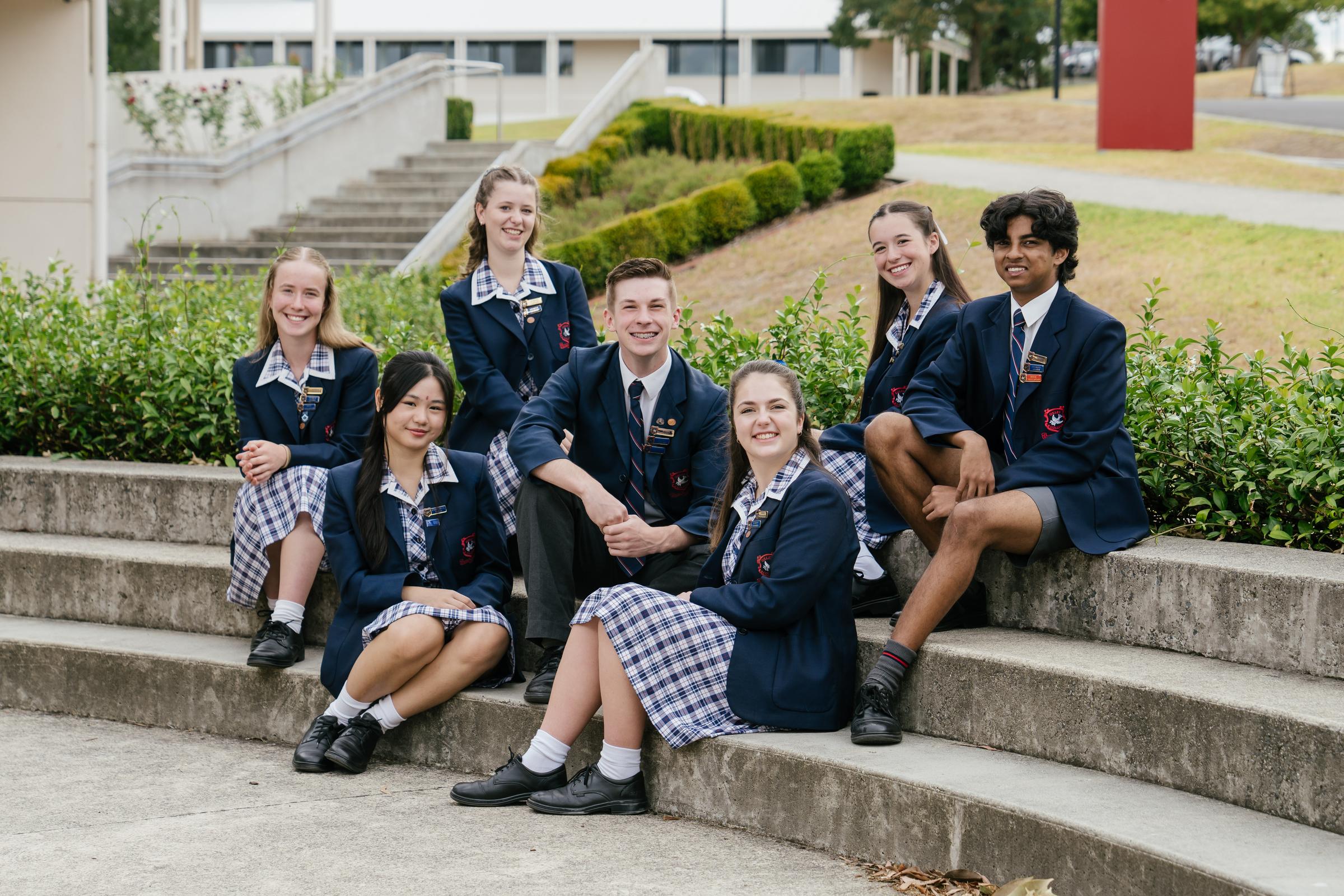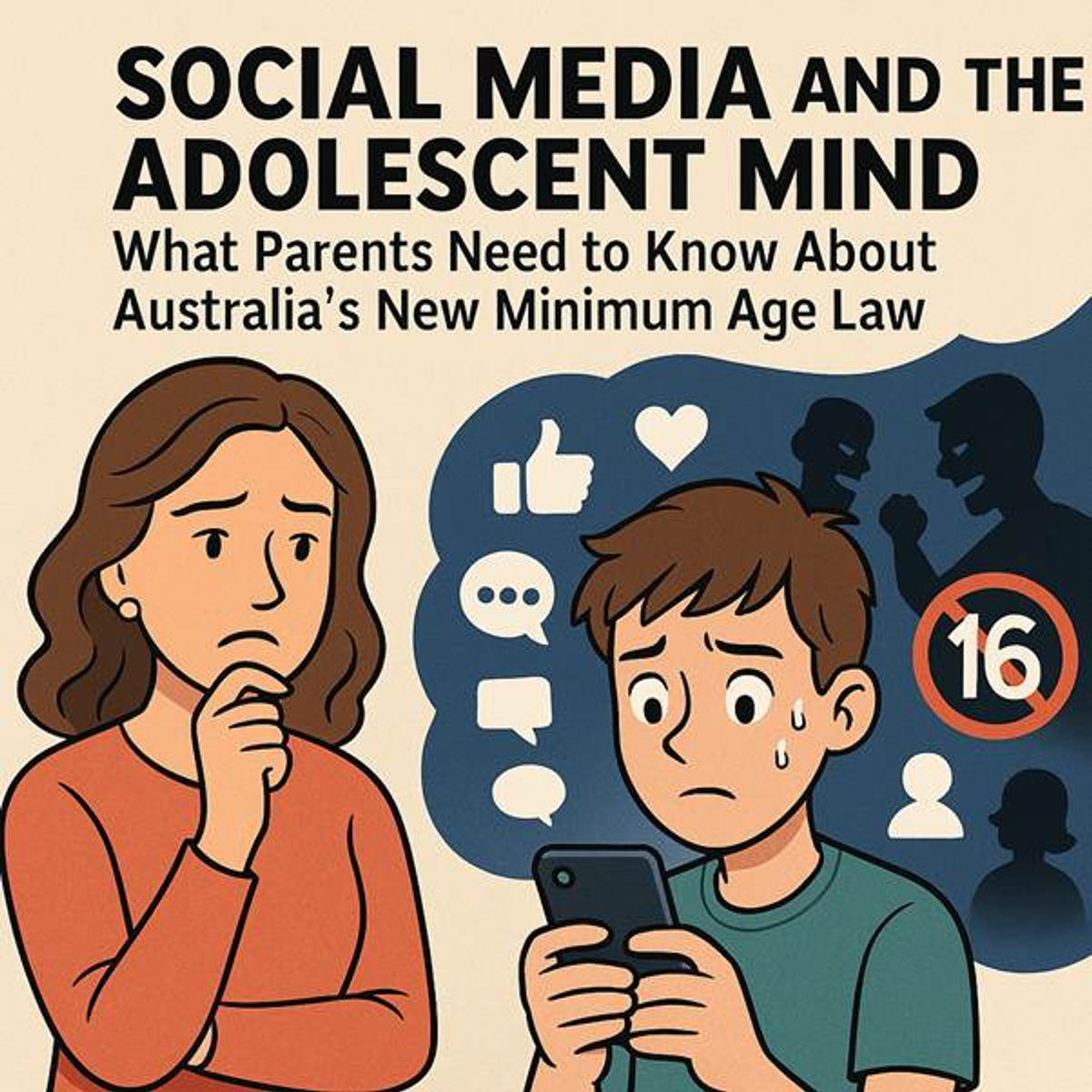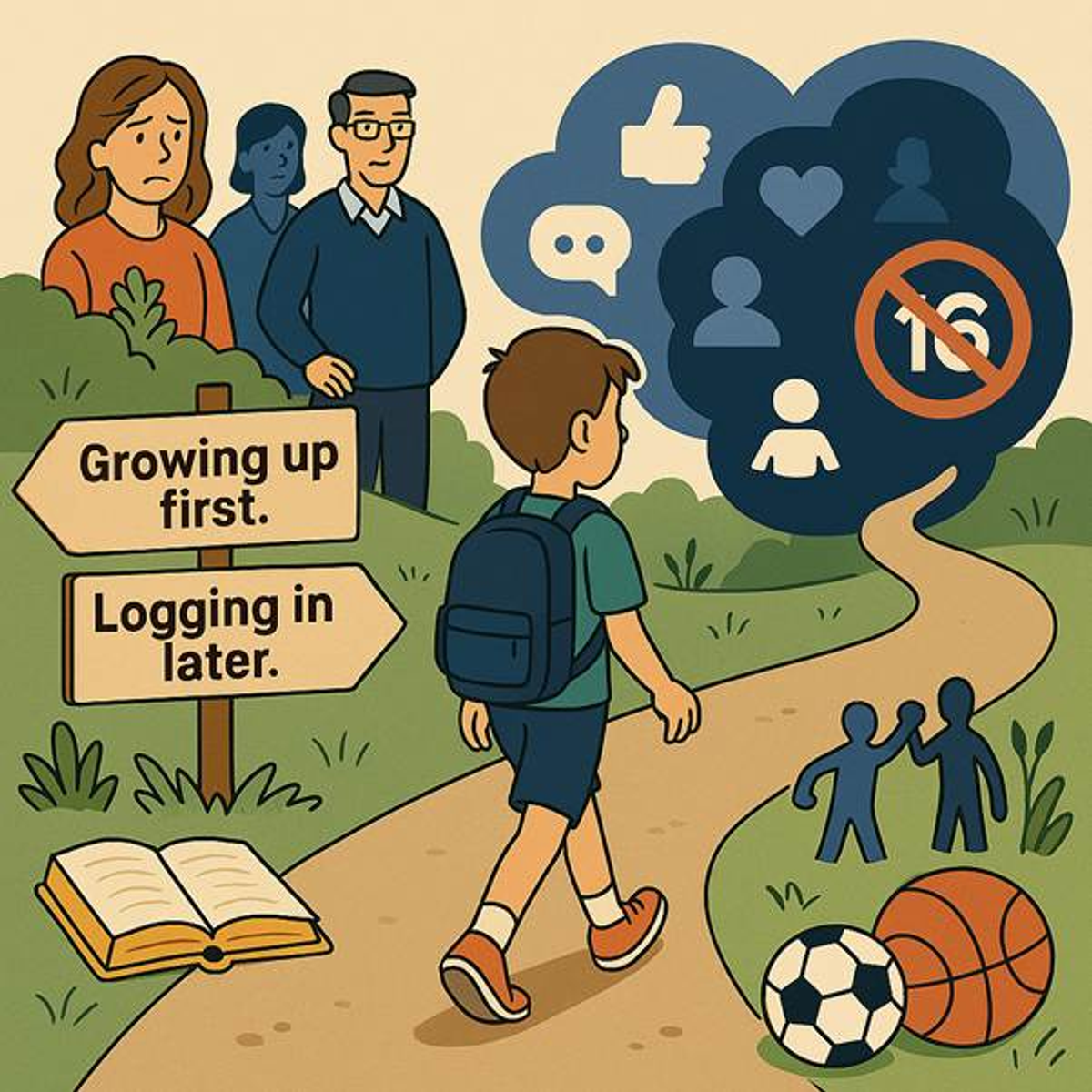Senior School

Social Media and the Adolescent Mind: What Parents Need to Know About Australia’s New Minimum Age Law
From the Wednesday 10 December 2025, the Australian Government will implement a world-first policy requiring social media platforms to restrict access for users under the age of 16. This legislation will place the onus on various social media platforms to take reasonable steps to prevent underage children from creating and/or activating a social media account. For many Oxley families, this change may prompt reflection, conversation, and perhaps some discomfort. It also offers a vital opportunity to reframe how we as a college community can support our students in their digital lives.
According to the Australian eSafety Commission, over 70% of young Australians have encountered content online that is inappropriate or damaging. This includes sexist and misogynistic messaging, violent fight videos, dangerous online challenges, and material that promotes disordered eating or extreme exercise habits. These exposures are not merely unpleasant, they can serve to shape identity, behaviour, and belief systems during a critical period of cognitive and emotional development.
The addictive nature of algorithm-driven content, the prevalence of harmful material, and the distortion of self-image are daily realities for many young Australians. The Government’s decision to raise the minimum age follows an ever-growing concern over the psychological, developmental, and educational harms associated with early exposure to social media. As a technology centric school, digital resources and the internet offer our students a range of benefits by providing access to learning, connection, creativity; but unsupervised access to social media also harbours risks that disproportionately affect adolescents.
The implications can be quite profound for parents as well. Adolescence is a time of identity formation, social experimentation, and emotional volatility. Social media platforms are designed to maximise engagement and often exploit these vulnerabilities.
The dopamine-driven feedback loops of likes, shares, and comments have been shown to create compulsive usage patterns, undermining attention spans and emotional regulation. Research shows that habitual social media checking can immutably alter neural pathways related to reward anticipation and sensitivity to social feedback, making adolescents more susceptible to peer influence and online validation.
Pastoral care initiatives and programs offered by schools must now contend with a digital environment that often bypasses traditional safeguards. The new legislation offers a reprieve for schools and a chance to delay exposure and reinforce protective factors. By removing the expectation that children must be online to belong, it empowers schools and families to prioritise real relationships, values, and routines. It also signals to young people that their wellbeing is more important than their follower count.
In terms of personal development, the delay in social media access can support healthier maturation. Adolescents need time to develop critical thinking, empathy, and self-awareness before navigating the complexities of global digital platforms. Without the pressure to perform or conform online, they may be more inclined to explore diverse interests, engage in meaningful conversations, and build confidence through real-world experiences. The absence of constant comparison can foster a more stable sense of identity and reduce anxiety linked to appearance, popularity, or perceived success.
Academic development is another significant area where social media can exert a corrosive influence on adolescents. The distraction factor is well-documented: students often struggle to maintain focus when their devices are gateways to endless entertainment and social validation. But beyond distraction, social media can distort priorities. When online personas become more important than intellectual growth, curiosity and intrinsic motivation may wane.
Bullying, exclusion and anxiety are often exacerbated and amplified by social media. For our teachers, this shift may also help to further enhance our classroom dynamics across the Middle and Senior schools. With fewer students immersed in online drama or distracted by viral trends, the College can work to foster deeper engagement and more authentic peer relationships. Oxley’s pastoral teams can focus on proactive wellbeing strategies rather than reactive crisis management.
The transition for some families will not be seamless. Some students may resist; others may attempt to circumvent the rules. The government acknowledges this, comparing the new law to seatbelt regulations or age restrictions on alcohol and tobacco. It is not infallible, but it is a cultural signal—a collective commitment to protecting young minds. Platforms are expected to deploy age assurance technologies, including age inference, estimation, and verification. Importantly, no Australian will be forced to use government ID to prove their age, and data protection remains a legal requirement.
All Oxley parents will play a crucial role in preparing for the change and open conversations with their children will be key. Rather than framing the restriction as punishment, it can be presented as a developmental safeguard and a way to give them time to grow before facing the pressures of online life. Families might explore alternative ways to connect, such as messaging apps, online games, or in-person activities. They can also help children download and preserve any cherished content from existing accounts before the December deadline. The College also provides a number of media sources where our students can easily communicate with one another online within a supervised space.
Ultimately, the Australian Government’s legislative suite invites a broader cultural shift and challenges the assumption that digital presence is essential for social belonging. It encourages families to reclaim time, attention, and emotional bandwidth. And it affirms the idea that childhood and adolescence deserve protection, not just from physical harm, but from psychological manipulation and premature exposure.
As a College community, it is another opportunity to model digital boundaries, to prioritise wellbeing over convenience, and to advocate for environments that nurture rather than exploit. The social media minimum age will not be a panacea, but it is a powerful tool that can help restore balance in a world that often feels tilted toward the screen.
As December approaches, families may wish to reflect on their own digital habits, revisit household norms, and consider what kind of online future they want for their children. The law may restrict access, but it also opens doors to deeper connection, healthier development, and a more intentional approach to technology.
In the end, the goal is not to isolate young people from the digital world, but to equip them to enter it with strength, wisdom, and support. By delaying social media access, we give them the gift of time—time to grow, to learn, and to become themselves before the world starts watching.
Sources:
- The Impact of Social Media on Adolescent Development – DISA
- Balancing the Benefits and Risks of Social Media – Child and Adolescent Psychiatry and Mental Health
- APA Health Advisory on Social Media Use in Adolescence
Festival of the Arts
The 2025 Festival of the Arts on Friday 10 October was a vibrant and inspiring showcase of our students’ creativity, talent, and collaboration. It was fantastic to see the incredible range of student work on display—from visual art to performance pieces—highlighting the depth of artistic expression across the College.
A big thank you to our dedicated Art and Productions Team for their tireless efforts in bringing this event to life. Their vision and commitment made the festival a truly memorable experience.
The atmosphere was further enriched by the performances of our bands and ensembles, whose music added energy and emotion throughout the day. We were especially honoured to welcome the Royal Australian Navy Band, whose contributions were outstanding and deeply appreciated by all.
Thank you to everyone who participated and attended. Your support continues to make events like this a cornerstone of our College culture.
Year 12 Valedictory Dinner
The Year 12 Valedictory Dinner on Wednesday 15 October was a truly memorable evening at the elegant Bramleigh Estate, where students, families, and staff came together to celebrate the graduating class of 2025. The venue provided a beautiful backdrop for heartfelt speeches, laughter, and reflection on the journey through secondary school. It was a night filled with warmth, pride, and gratitude as students were honoured for their achievements and character. A sincere thank you to all who helped organise this event; it was a fitting tribute to a remarkable cohort.
Year 12 Final Assembly
On Monday 20 October, we had an emotional farewell where the College Captains barely held it together—at both the dinner and the assembly—as they shared heartfelt reflections and thanks.
VCE Examination Commencement - Tuesday 28 October
We wish all our VCE students the very best as they begin their final exams—may their hard work and preparation bring success.
Upcoming Events
| Date | Event |
|---|---|
| Monday 27 October | VCE Unit 2 Concert |
| Tuesday 28 October - Wednesday 19 November | VCE Exams |
| Wednesday 29 October | Year 10 Job Search Day |
| Friday 7 November | Year 10 Formal Dinner |
| Monday 10 - Wednesday 12 November | Year 9 Exams |
| Monday 10 - Friday 14 November | Year 10 & 11 Exams |
| Monday 17 - 27 November | Head Start Program |
| Friday 21 & Monday 24 November | Student Free Days |
| Friday 28 November | Year 7 Orientation & Years 7-9 Excursion Day |
| Tuesday 2 December | Presentation Evening |
| Wednesday 3 December | Final Assembly |
| Friday 5 December | Last Day Term 4 |
James Avram
Deputy Principal and Head of Secondary


